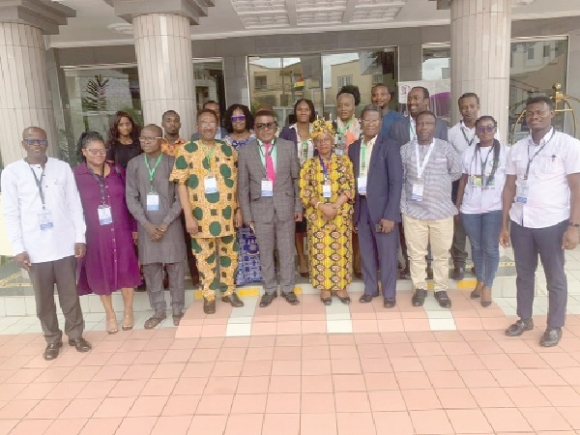
Exploit commercial value of medicinal plants — Prof. Yankah
THE huge economic potential and commercial value of herbal medicinal plants should be exploited by African countries to balance their economic deficits, a former Minister of State in charge of Tertiary Education, Prof. Kwesi Yankah, has said.
For instance, he said the wealth of the continent’s medicinal plant resources remained largely untapped such that making medicinal plants central to the development of health policies, if properly guided, can make significant contributions to the economy.
“China’s traditional medicine is reported to contribute 30 per cent of total world trade, followed by Korea, USA, India and Chile.
Africa, endowed with 45,000 plant species-about 25 per cent of world plant genetic resources, uses only 5,000 plant species in traditional medicines. 40,000 species are still available to be cultivated for the world market,” he said.
Prof. Yankah gave the advice as the keynote speaker at the opening of the 7th International Society for Medicinal Plants and Economic Development (SOMPED) in Accra on August 29.
The three day conference brought together scientists across Africa including Nigeria, South Africa, Ghana, among others to deliberate on the theme: “Sustaining Medicinal Plants amid Global Economic Challenges and Climate Change.”
Why medicinal plants?
The World Health Organisation (WHO) recognises 70 to 80 per cent of populations in developing countries depend on herbal plant medicine as remedies. The global market of products derived from plants is estimated at US$83 billion with eight per cent from Africa.
Approximately, 25 per cent of modern drugs and as many as 60 per cent of antitumor drugs are derived from natural products. Only 15 per cent of plant species in the world have been evaluated to determine their pharmacological potential.
As the world seeks alternatives to synthetic drugs and embraces traditional healing methods, Ghana's indigenous plants offer a treasure trove of bioactive compounds that can be harnessed for drug development.
The cultivation, processing, and export of these plant-derived pharmaceuticals could create a thriving industry, generating employment opportunities and enhancing the country's export earnings.
Ghana's medicinal plant resources hold great promise not only for health care but also for driving economic prosperity and environmental conservation, making them a valuable asset in the nation's quest for sustainable development.
Sustaining medicinal plants
A former Executive Director of the Centre for Plant Medicine Research (CPMR), Dr Kofi Bobi Barimah, charged scientists to push for the integration of herbal medicine into the country’s health system to help sustain it.
He said 80 per cent of Africa's population depend on medicinal plants for healthcare needs, hence, if any continent should ensure the sustainability of medicinal plants.
Medicinal plants are plant species whose therapeutic actions are known and utilised to ease man’s disease. The importance of medicinal plants is evidently undebatable.
However, he said for several decades now, climate change, mainly sponsored by anthropogenic activities, has remained alarming and threatening to vegetation which encompasses medicinal plants.
Therefore, he said there was the need for the most concerned entities, scientists, to champion the cause and take up the responsibility to do their bit in saving the world’s plant life.
“Several suggestions have been given to sustain plant life of which some include but not limited to; legislation, afforestation, restoration, enrichment planting, cultivation of gardens, arboreta, medicinal plant farms and protected areas.
Even though conservation of plants is now attracting funds, we must encourage research leading to domestication of medicinal plants and the protection of plant genomic resources in advent of new varieties in our attempts to sustain medicinal plants for ourselves and the future generation,” Dr Barimah said.
He said sustaining medicinal plants amid global economic challenges and climate change would not be an easy task. However, it is worth attempting for the crucial life support medicine plants give.
Standardisation
For her part, the President of SOMPED, Olukemi A. Odukoya, said the standardisation of herbal medicines differs from one country to another such that it requires countries to establish their own standard to enable them to control the quality and purity of products they produced into the market.
“At least there are basic standards of microbial loads and their quality and safety for human use, unlike refined pharmaceutical dose, herbal medicines are used holistically and researchers are looking at how to produce vital medicines successfully that are efficacious and not toxic to the populace and affordable,” she added.